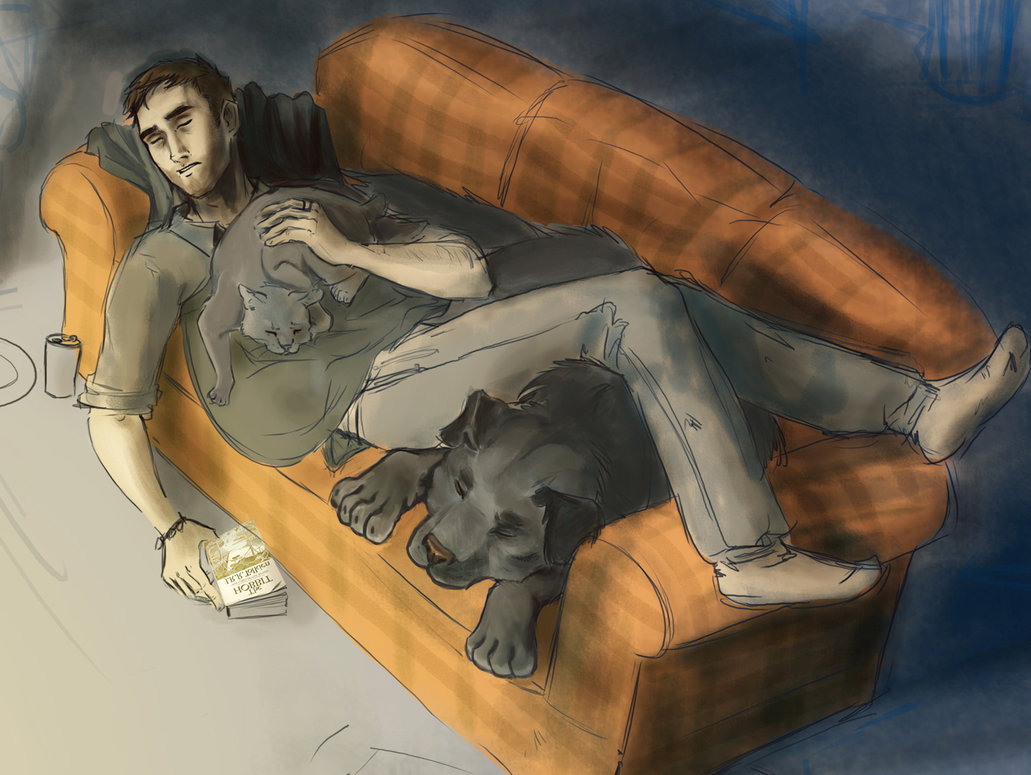Happy birthday, Proton!
While I appreciate the efforts Valve puts into improving WINE/Proton, lets not forget that they are standing on the shoulders of giants and gaming with WINE was not that bad before the integration in Steam either.
Gaming with Wine was decidedly far worse before Valve started pumping money into it. Back before Proton was officially announced, there was a silent acceleration in Wine compatibility, getting better a rate we weren’t used to, and it’s in large part due to Valve partnering with CodeWeavers.
I think the point isn’t to say Valve’s help isn’t appreciated, but to give a little reminder to share some gratefulness with the amazing people developing Wine before Valve got involved as well. It was and is an impressive piece of software in its own right. :)
That doesn’t mean Valve wasn’t a complete game changer. The fact that they managed to make a handheld Linux gaming device popular among gamers rather than just open source fanatics is impressive as hell, and we’re all better off.
Oh of course, but I was particularly addressing “gaming with WINE was not that bad before the integration in Steam either”, because it really wasn’t great, as important and foundational as it was.
I mean, enthusiasts made it work. Compared to nothing, it’s a hell of a lot better. PlayOnLinux was also popular.
I guess it depends on what you mean by “that bad”. It has certainly gotten a lot better, nobody is denying that.
Here is an alternative Piped link(s): https://piped.video/watch?v=bKFPRQA-j0A
Piped is a privacy-respecting open-source alternative frontend to YouTube.
I’m open-source, check me out at GitHub.
Yeah, that’s not necessarily the case. Did it kind of work? Sure, if you knew what you were doing. Was it at all the seamless experience that Proton is now? No.
What? I’ve exclusively used Linux since 2006 and gaming outside of retro emulation was absolute trash until proton. Of course WINE and code weavers were doing great work but it was overly complicated to use and the compatibility was abysmal.
Let’s not forget that Valve released a Linux port for TF2 in 2012, released their native client in 2013, released SteamOS in 2013 and in the end ported nearly all their games to linux. It didn’t start with Proton.
But Humble Bundle pushed ports before that, because games had to have a Linux port in order to get into the bundle.
I am on Linux even longer than you and native Linux gaming was not trash at all, it worked great, just the selection of games was very small (edit: before Steam was even a thing on Linux). WINE was always a bit hit or miss, but once you got something working, it was usually ok. Sure Proton made it more convenient, but it was more of an gradual improvement than the quantum leap some people claim it to be.
Going from a miniscule library of games that could work (I remember Linux Steam back before Proton having almost nothing of note) to opening up something pretty close to the entire Windows library and running Linux on Valve/Steam’s own handheld console for their games is indeed a quantum leap. That’s what Proton has done for Linux gaming. It may have gotten there eventually just with Wine and community contributions, but it would have taken possibly quite a few years longer to get there without Proton.
I think that is very subjective to the types of games you are interested in. For me Steam before Proton had so many native (indie) games that I literally couldn’t find the time to play all of those I was interested in.
So you agree that your interpretation was very subjective, and many people didn’t have the ease that you had?
No, because going from thousands of games to play to even more that you will never have the time to play is not a quantum leap.
If you had said Proton/DXVK made it finally possible to play a few triple A games I would have agreed. Still not a quantum leap though.
I’ve tried three times to fully convert my gaming rig to Linux, sticking with the effort at least 3 solid months minimum each time. The first time was back in 2015. Only a small subset of my Steam Library worked, despite all of my best efforts hacking on bottles, and there was no way I could stick with it if I intended to play anything with friends. Community aside, Valve and Feral were leading the charge, but I could not stick with it.
My second attempt was around 2019. Almost half my library ran, some in need of care and feeding, others barely functional, but running nonetheless. This was primarily due to my curation efforts of trying to make sure the games I bought offered some slim hope of compatibility. Wine was still a very inexact science, so attempts to get things running outside of native ports or Valve games was a poor facsimile. WineDB representation of compatibility layers was a wide gradient of colors, with most AAA titles still squarely in silver territory or worse. Anything with anti-cheat was a fool’s errand.
My rig’s now been on Linux for 4 months solid, and the state of Linux gaming is nothing close to what it used to be. The state of EAC support thanks to Steam Deck represents a quantum leap all its own, and that wouldn’t have happened without Proton. The overwhelming majority of my Steam Library runs with no effort, each game running nearly as good or better than it did on Windows. This shift did not feel incremental.
Most people want to play aaa games by your own argument gaming on Linux before proton wasn’t easy you just happen to really like indie games but most people aren’t like you
Ah, good ole “your opinion is subjective, but mine is absolute”.
The quantum leap for linux gaming was that one guy who wanted to make nier automata work and developed dxvk.
I would probably agree to that more than for Proton, but the truth is also that DXVK’s further development was largely funded by Valve.
Yes, they just started to pay who already worked on all that stuff and had the know how. They paid CodeWeavers to work on proton, started to pay the DXVK person, I’m not sure if the D9VK fork person was paid but I think so, paid the FNA person.
Though DXVK wouldn’t be possible without Vulkan and Valve was involved in Vulkan since the beginning. They also pay people to work on linux drivers since 2014.
You’re correct in giving WINE the credit it’s due.
But I couldn’t disagree more with the “gaming with WINE was not that bad” statement.
It was horrible. Game updates broke compatibility a thousand times, outdated Wine wrappers were a mess, setting up most games involved convoluted scripts, and even when things magically just worked performance was usually lower (except for some specific CPU bound games).
deleted by creator
The results were fine, but the work to get there was quite bad quite often.
UX polish is one of those things that just isn’t as fun to do, and isn’t as rewarding either. So pumping a bunch of money into it is going to go a long way towards making all the other hard work come out better.
I think their efforts are more for bringing gaming on Linux to more mainstream attention. Not knowing you can game on Linux is a major factor for a lot of people in not switching.
deleted by creator
The 10 developers Valve hired have nearly nothing in their Github profile. Proton history is nothing but community based code and a copycat of Wine, just like everyone said in the very start of Proton.
I didn’t even know that Proton was Wine, until somewhere else pointed it out here on Lemmy… (granted, I am not a proton user, that’s why my lack of context was there, but I follow the Chinese retro handhelds community so that’s why I knew why Proton is awesome).
Please don’t spread misinformation Valve does not put in effort, they paid people to make Proton, it’s the community that makes the code NOT VALVE. A simple github chart can tell you everything.
They directly hired people to work on it… how else would you describe “putting efforts into” when a company does it?
Please don’t credit me for writing this comment. It was my hands I employed that did the typing
You can’t say Mcdonald’s CEO put effort in his work because he hired people to make the food. See how dumb that sounds.
It sounds dumb because no one’s saying that, you just made it up. That would be like if someone was directly crediting Gabe Newell with, idk, CS:GO battlepass sales or something. That’s not what anyone’s saying.
A better comparison would be crediting McDonalds as a company for their work in the handheld apple pie space. Did they outsource the work? Maybe. Did they come up with the recipe themselves? Probably not. But without McDonald’s involvement, we wouldn’t be able to enjoy hot, fresh, fruit-filled pastries with our Big Macs, and our fast food dessert choices are better for it. See? Much less dumb.
No it still sounds dumb, we know they were built by machines and were sold in packs. You lack basic understand in how certain things work. Game development also applies, Github is still the number one source for the information on Proton Contributors, GitHub data doesn’t lie, Valve employees do nothing.
So paying someone to do something doesnt give you any credit? How does companies work then. Please don’t credit any company for anything, they just paid people who put in the work? Who are you kidding?
I think a lot of people are misunderstanding what Proton actually brought to Linux gaming.
I had been running Linux exclusively for some moths in 2013-2014, and trying to get games to work on Linux felt like this : Wine is likely able to run it if you can found the right configuration, but good luck with that. I think the only game I managed to run without issues was Civilization 4, so I rolled back on Windows some time later.
Of course, Valve contributed to Wine, and projects like dxvk and others are major achievements (if a team effort), but that’s not their main contribution. Valve understood that gamers may be somewhat more tech-litterate than other people, but that making games work on Linux should be easy. And that’s what Proton was made for.
Nowadays, most games I buy on Steam work out of the box. I sometimes forget to check protondb before buying a games, and I rarely had an issue. Even if in 2018 you had to tinker a bit, you rarely needed more than to choose the correct Proton version (big up to Glorious Eggroll).
I think it’s symptomatic of the situation of the Linux Desktop : technically, it’s where it needs to be. But there is still a gap in accessibility and easiness. Tinkering is nice, but you should not have to do it to have something that works.
Not only that but they helped reach critical mass to drive adoption, and used their dominance in the industry to push studios to work with us, instead of against us.
Nice to see some comments like yours truly get it. The amount of people I’ve seen that now use Linux just because of Proton is surprising. It also gave us the Steam Deck. Valve do tons and people saying it’s just “Wine patches” or moaning I didn’t focus on Wine are missing the big picture that you get nicely :)
To add to that, back in the day you had to find out what engine a particular game used as there were huge compatibility issues with certain engines and others ran a fair amount slower via Wine. Some engines, however, ran incredibly well under Wine.
That said, there were some cool things you could do in Wine like define a pseudo monitor to run your game on. Example, back in 2010 (before widescreen monitors were more common) I had a triple head setup on Linux. I could specify in Wine an arbitrary monitor size (like say 2560x1024) and run games “full-screen” centered on my setup while having other windows open on the edges of my real desktop.
Even games that officially didn’t support multiple monitors and on Windows (would force themselves to one screen and black out the other ones) ran well via Wine with this setup.
It was a bit involved to get working the first time though!
Played through the HL2 games, Supreme Commander, Rift: Planes of Telara, and even Wow that way (though WoW had other issues with non 4:3 displays).
That’s great and all, but the Wine devs deserve much more credit. Proton is just like the icing on top.
You’re massively simplifying it. Proton is a lot more than just “icing” on the top.
while it’s definitely not just icing on the cake, they were definitely standing on the shoulders of giants.
No one is denying that. I’m certainly not, and it’s not the point of the article either. But people just seem to want to complain, and refuse to just take the win. As always.
For those who don’t know such as myself, care to give more detail?
Before Proton there were many projects that were helping run windows games and apps on Linux. Many of these were massive undertakings:
Wine (translate windows API calls to Linux API calls)
Wine tricks (automates the installation of many Window app dependencies)
Crossover and their work on wine & wine bottles (a mini windows drive environment for each program)
Loki’s early work on SDL to simplify sound and input for Linux and other *nix targets.
Mono (open source implementation of . Net a library used by a fair amount of windows apps (also includes Moonlight - the open source implementation of MS Silver light)
DXVK a impressive and efficient Direct X 10 & 11 to Vulcan translation layer (later incorporated D9VK - Direct X 9 to Vulcan) which also helps older games run better in Windows in addition to adding compatibility for Linux
And many other pieces I’m forgetting now, make up Proton. Valve did an awesome thing in packaging all the community developed components, put some of those devs on their payroll, and even paid Crossover to work on the project that ultimately became Proton.
Now with Proton, what would require lots of individual steps and separate downloads (setup a separate wine environment for each application, add dependencies, install DXVK, install needed open source frameworks, add any registry tweaks needed, etc) is now
maficallyautomatically handled behind the scenes in one step by one tool by just installing a Windows game on Linux via Steam (though Proton can work without Steam as well).Since all the work is open sourced, the community is able to have their own version of Proton with newer fixes and components that Valve could not distribute themselves due to licensing: Glorious Eggroll.
There were many attempts in the past to make an all-in-one tool to handle setting up wine and other compatibility tools (Lutris, Transgaming, PlayOnLinux, etc). So Valve wasn’t necessarily the first, they just offered a well put together, funded, and easy to use implementation.
This is a really good writeup, thanks for sharing.
I’ve been gaming on Ubuntu in some capacity since 2007ish and it’s so easy to do now without having to manage wine versions and prefixes and mono versions, etc.
Check out this comment above for why it made such a huge difference.
Are you kidding? Proton is much, much more than “icing on top”.
I feel like attributing this to Valve is really disrespectful to the folks who developed wine for decades (and more recently also Vulkan). The real game changer is Vulkan, which made Linux graphics to be competitive with DirectX. (OpenGL interfaces to DirectX was simply not competitive)
You’re right. So many people to thank here. One thing you cannot deny is that Valve is one of few companies that loves gaming on Linux and it deserves a huge credit.
One thing you cannot deny is that Valve is one of few companies that loves gaming on Linux
Valve is a corporation, what they really “love” is money. All their Linux strategy is simply future-proofing. They know that if gaming kept being restricted to Windows, they could have been destroyed overnight by Microsoft, especially since MS start betting hard on gaming and built their own Steam competitor.
and it deserves a huge credit.
Well, they certainly do. I, for one, am grateful, since I’ve been using Linux for over 20 years. But I know they’re in for the money, and that’s ok.
Valve does not love gaming, they refuse to listen to TF2 fans, they never build games, they brought out studios, criminal cases, Antitrust lawsuit and branding loyal fanbase that keeps defending Valve awful actions in gaming. This is not love, this is toxic community and a toxic company aiming to be profitable at all cost.
Valve? Profitable at all costs? The same Valve that refuses to give sequels to games for their own IPs because they can’t come up with ideas they feel are innovative enough, even though they know they would sell tens of millions of copies regardless of the quality?
The same Valve who literally gave Proton to the Linux gaming community?
That valve?
I don’t know why this keeps having to be said, but companies need to defend their IP in court or they risk losing their trademarks. This does not mean companies are evil.
As for not listening to TF2 players, I’m pretty sure the game is still pretty popular so they must be doing something right.
I’m not a valve apologist. I hate that they’ve shifted their focus from developing games to developing their platform for many years. It’s frustrating. But they did just release Alyx. And they are objectively doing some great things for the PC gaming community with the steam deck.
The Valve that pushed always online drm to the masses? That Valve that takes 30% of every purchase made on their monopolistic platform?
Yes, that Valve.
Let’s not pretend Valve hasn’t gotten to where it was against consumer interest and especially not that Valve is some kind of a good guy.
One more on top: That Valve that had to be forced to offer refunds and to this day offers the worst customer support in the industry by choice? (Yes that one)
Why would they need to make games when they can just sit on their ass and because of steam monopoly on games storefronts they would still be paid?
“As for not listening to TF2 players, I’m pretty sure the game is still pretty popular so they must be doing something right.”
Like what? They arent doing anything but release workshop cosmetics lol. Did they even fixed the bot problem after all this time?
You’re right, they don’t need to make games. Yet they just released Alyx! Counterstrike 2 is known to be in development!
I don’t play TF2, so I don’t know what they’re doing right, but people are still playing it so whatever they are doing is apparently just fine with a lot of players. Bots have been problematic in online games forever, I don’t really know if that’s a TF2 specific issue. In any case, they’ve already supported TF2 way longer than most companies actively support their non-subscription games so I’m not sure what level of expectation is fair really.
No one has to like Valve, but painting them as this evil force in the gaming industry is a little bit silly IMO.
Show us on the doll where Valve hurt you.
i guess was on the tf2 lmao, almost like it was a choice of the devs to not work on that spaghetti not valve, because that’s how valve works, the devs do what they want
The kickoff meeting for Vulkan was hosted by Valve. Like everything it’s not only Valve, but they had their fingers in this too. Valve is just one of the companies/groups that is pushing linux ports and vulkan support.
Valve is mostly moving interests of big game companies with steam machines and steam deck. Steam machines flopped, but initially they made companies consider ports. The success of steam deck will likely result into them paying more attention to not break wine/proton.
I feel like attributing this to Valve is really disrespectful to the folks who developed wine for decades
Honestly, it feels like comments like this are just intentionally missing the big picture, or just don’t understand any of what Valve actually do.
It’s been said by comments elsewhere, but Wine was really not good years ago. It was difficult to use, obscure as you had to seek it out and know what to do. Valve funded DXVK, VKD3D-Proton, various extra Wine patches and pushed it all together into Proton with Q&A testing, regular upgrades for big games to get them working ASAP and put it in front of millions easily directly in the Steam client.
and more recently also Vulkan
Which once again, Valve massively helped push and even hosted the early discussions on it.
It’s a collaborative effort. The Wine and Vulkan projects have all done a lot and deserved credit for doing massive, amazing things. But for Linux gaming specifically, Proton has absolutely changed the landscape, and if Valve continues down this path, will make Linux an ever better gaming platform. So I don’t think it’s unfair to say thanks to Valve.
Not only have they sunk significant resource into making Linux gaming more viable, they’ve released Proton under BSD and seriously pushed developers to make Linux-compatible binaries. If Linux continues it’s slow upward trend in popularity, Valve will be in large part to thank.
At least initially this was mostly DXVK though, which is a project that was secretly funded by Valve after it showed some promising initial results. Edit: but I agree that WINE deserves more credit.
as someone else said, it’s a “standing on the shoulders of giants” moment for Valve
I feel like attributing this to Valve
What exactly do you mean by “this”? The post is about the 5 year anniversary of Proton. Also, why do you consider crediting the developers of Wine disrespectful? I just can’t follow.
Of course Proton wouldn’t have been possible without all the many years of work that went into the Wine project in the first place, and everyone who contributed to Wine should be applauded for their effort. Valve has funded a lot of extra work though to get things like DXVK and VKD3D-Proton for the translation from Direct3D to Vulkan into a state where performance can be really great! Valve also funds work on Linux graphics drivers, Linux kernel work and the list goes on.
Thank you. I found this post disrespectful, and insulting. Valve have started contributing to a long running project. Which is great, but there has been tremendous work over the years before valve, and even still
what is vulkan
still dont understand, eli5 please?
Games have to talk to your operating system to have it tell your GPU to draw lots of funny pictures that come together to make up the graphical portions of the game. Game developers do not want to do this directly, because talking directly to the OS is hard. As such, games talk to graphical APIs like Vulkan or DirectX to do the hard bit for them.
For years almost all games used DirectX, which is made by Microsoft. This gave Windows a virtual monopoly on PC gaming because they weren’t about to let their competitors use their API. Then Vulkan came out, which was designed from the beginning to be OS-agnostic, sending us to the promised land of games that could (with some other efforts) run on any machine, anywhere.
When developers need to draw graphics on the screen, they use an API like Direct3D (or DirectX) or Vulkan to accomplish it. Direct3D only works on Windows. Vulkan works on many operating systems. Vulkan replaced OpenGL.
DXVK translates DirectX calls, which only work on Windows, to Vulkan calls, which will work on Linux and other operating systems. It’s so good at this that it’s better than commercial game engines like Unity. DXVK is a separate project from Wine. Wine also uses wined3d to convert older Direct 3D calls to OpenGL calls, for the same effect.
Lastly, there’s VKD3D, which is Wine’s own Direct3D12 ➜ Vulkan compatibility layer. Valve forked this and created VKD3D-Proton, which is specifically designed for games, as opposed to general software.
Yes, it’s a bit confusing.
I would not be using linux (at least not exclusively) if it weren’t for proton. Many thanks 🙏

Thank you Valve for consistently making gaming easier even in my silly little operating systema
Valve is the only corporation I will unapologetically simp for. It’s amazing how far Linux gaming has come in the past few years, especially now that the developers of stuff like EAC are finally making their shit compatible.
Valve is such a weird company.
They became where nearly every PC game is sold by using some of the greatest games of all time as advertising. The orange box has to be the biggest return on a loss leader ever.
Arthur Morgan voice (while running through Proton): Thank you.
what
I wont spoiler you if you didnt play RDR2 yet
i have, what does this have to di wuth rdr2
Oh those memories, playing Commandos 2 on an old Laptop running Lubuntu in the summer of 2016. The wine setup worked strangely easy. But yeah, Proton accelerated everything immensely!
Removed by mod
Proton made me uninstall my dual-boot windows-steam-launcher
Are there still more people with VR headsets than Linux gamers on the steam survey?
deleted by creator
I am getting a MacBook for work reason (my work required MacOS-only app, not my choice). I would prefer to only have 1 laptop if I could. So should I pay extra for higher model (more GPU cores) and use it for gaming? (I Mostly play racing game and single player RPG). Or would I better off by getting the base model MacBook pro, and a mediocre PC with the money left over (~$700)?
I’ve never owned nor used MacOS before.
Thanks.
macOS has made it difficult for both game developers and Wine developers to support the platform by letting their OpenGL support rot, removing 32-bit support, ignoring Vulkan and coming out with their own graphics API, Metal. Wine is in a worse state than on GNU/Linux. There aren’t many native games available for macOS.
That being said, your best bet is likely CrossOver. They employ the principle Wine developers, worked with Valve on Proton, and have put a lot of effort into supporting macOS. They’ve got a free trial with complete functionality you can try out.
But if the games you’re playing have native releases for macOS, that’s not something you need to worry about. There are just so few games available on macOS that I assumed they don’t. Now, I only have an Intel iMac which I never play games on so I couldn’t tell you how the newer ARM laptops perform.
This is very out of date. The new game porting toolkit makes it trivial to play most windows games.
Kind of. Its more aimed at developers to “port” the game rather than the end user. Saying that there will no doubt be a third party solution.
I was aware of the Game Porting Toolkit announcement. In fact, I first learned of it from CodeWeavers, who noticed Apple used their code to develop it.
We are ecstatic that Apple chose to use CrossOver’s source code as their emulation solution for the Game Porting Toolkit. We have decades of experience creating ports with Wine, and we are very pleased that Apple is recognizing that Wine is a fantastic solution for running Windows games on macOS. We did not work with Apple on this tool, but we would be delighted to work with any game developers who try out the Game Porting Toolkit and see the massive potential that Wine offers. Our PortJump™ team has perfected the art and science of creating ports of Windows applications using our Wine technology, and we welcome inquiries about how we can help get your game working on macOS.
I don’t play games on macOS, but my understanding was the same as yours; that it was a testing tool for developers to test out how the game might work on macOS. That’s how it was presented. I didn’t think it was meant to be used by macOS users.
In any case, CrossOver is intended to be used by macOS users (and the GPT uses the same code, as enthusiastically explained above), and it has a good graphical interface. I think these factors make it obvious to recommend CrossOver as the canonical solution for playing Windows games on macOS.
Gaming on Mac is a bit of a new territory. You can install Linux on modern Macs through Asahi Linux, but most games don’t work on it yet since it’s still somewhat experimental.
If you want to stick with MacOS, there’s a sort of Proton for it called Game Porting Toolkit. You may want to look at some benchmarks on it.
@cordlesslamp @simple
Simple : Buying MacOS machines harm the climate and the software devs , Whatever are your reason , please think twice if you can chosse an open platform insteadMy work load require Logic Pro, which only available on Mac, unfortunately.




























